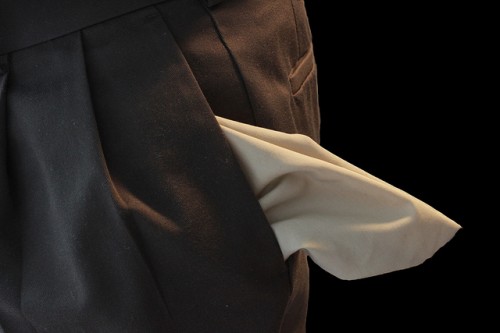
It’s hard to get out of debt. Sometimes it’s easy to feel that no matter how hard you try, you’ll never be able to pay off all your debt and expenses. While you might have reassessed your finances and figured out how to begin paying down your debt, it’s important to understand how to minimize debt in all areas of your life. For instance, you might not even realize that you have a variety of daily habits that are keeping you buried in debt despite your best intentions. The following are a few of the more common ones.
Spending More Than You Have
It’s easy to spend more money than you have whether it’s by writing a check, swiping a card, or willfully ignoring the decreasing amount of money in your bank account. Just because you have money in your bank account, it doesn’t mean you have to spend it as it many times has already been allocated for other recurring expenses. Fooling yourself into believing that if there is money in your bank account at the moment that it’s OK to spend it is an action that will continue to keep you in debt.
Impulse Purchases
Impulse purchases are one of the worst habits keeping you in debt. You might really want to stop and get that pastry or that new tech gadget or piece of clothing, but actually buying those items on a whim is contributing to your debt. If you tend to make impulse purchases on a daily basis, you should take steps to seriously curb this habit so that you don’t put yourself into even more debt.
Buying Things You Already Own
Buying things you already own is also contributing to your debt problem. Do you need to buy lunch or dinner at a restaurant or takeout place when you have food in your house or apartment? Do you need to buy coffee when you can make it at home? Do you need to stop and pick up more clothing when you have a closet full of clothes with the tags still on? Stop buying things you already own and focus on using what you have. If you find that you are purchasing things without realizing that you already have them, it might be time to declutter your house.
Buying Things You Don’t Need
Buying things you don’t need is another problem for anyone already in debt. As with buying things you already own, the problem of buying things you don’t need just contributes to wasting money you should be saving. When you make a new purchase each day, reassess whether or not you really need that item. Instead of buying it without a second thought, take a moment to determine whether or not you’re wasting money on something you don’t actually need.
Using Credit When You Have Cash
Sometimes the problem with spending too much money is that it’s easy to swipe a card and figure out how much was spent at a later date. When you carry cash, you’re limited to the amount of money you can spend on one purchase. While it’s great to have a credit card for emergency purchases, using one for everyday items could be the reason why you’re racking up the bills. Try only using cash for daily purchases so you can limit how much you buy and reassess what you’re buying.
Not Tallying How Much You Spend Each Day
While some people may consider this a burden, tallying your daily purchases is a good way to recount how much money you’ve spent in one day. Chances are you’ll find that you’re spending a lot more money than you need to be spending each day. This can help you figure out how to eliminate money from your daily spending habits.
Not Putting Money Aside
Putting a little money aside each day is a great way to help your debt problem. It doesn’t have to be a large amount of money. It can be anything from spare change in your wallet to a dollar a day. A small amount goes a long way when it comes to saving and anything you can do each day to contribute to paying down your debt is worth it.
Not Budgeting
Budgeting isn’t only for monthly or yearly financial plans. You can set a budget on a day by day basis. This might seem like a hassle for some people, but it’s a great way to keep you from overspending or wasting money on impulse purchases.
Not Being Consistent
Not being consistent with your money habits is another big reason why you’re still in debt. It’s easy to make a huge deposit into your savings account one month, but to not save for the other eleven months. Consistency will help keep you on track with your savings plan.
Not Knowing How Much Money You Have
One of the worst things you can do to your finances when you’re in debt is not knowing how much money you actually have. If you’re not aware of the amount in your bank account, you run the risk of spending money you don’t have. Knowing how much money you have will allow you to keep better track of your spending habits and help you steer clear of falling even deeper into debt.
(Photo courtesy of Bradley Gordon)
Comments